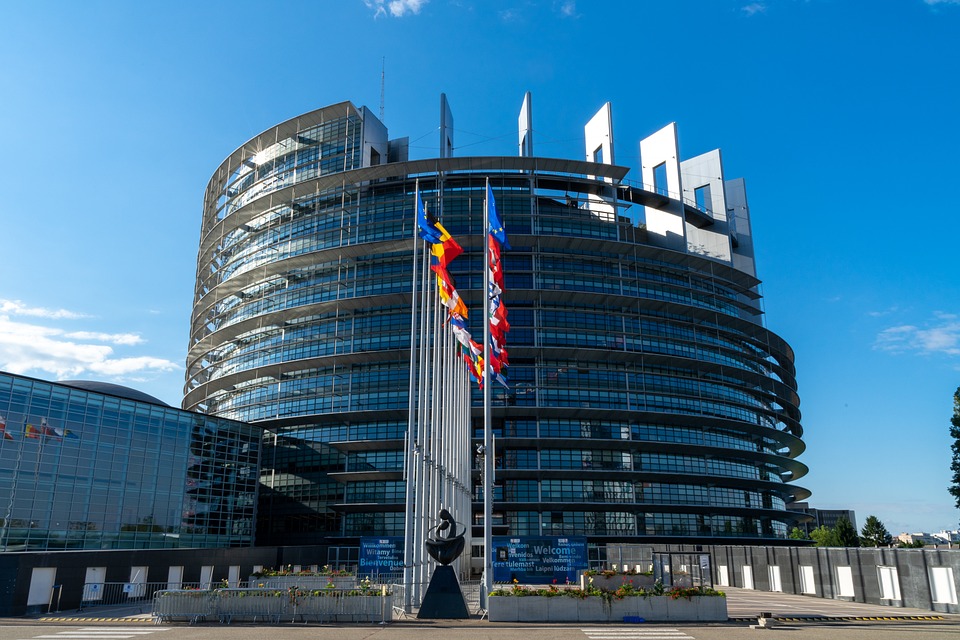Josep Borrell, the European Union’s High Representative for Foreign Affairs and Security Policy, made a significant visit to Cyprus on Saturday, where he met with Israeli and Palestinian civil society organizations advocating for a two-state solution to the Israeli-Palestinian conflict. The conference, which focused on the creation of an independent Palestinian state, was organized by the Geneva Initiative, a longstanding project that aims to provide a framework for a lasting peace agreement between Israelis and Palestinians.
Borrell, who is set to leave his position as the EU’s top foreign diplomat, delivered a keynote address at the event. In his speech, he praised the “brave” efforts of civil society groups working towards peace, many of whom face significant challenges and even opposition within their own communities. He emphasized the urgency of achieving a ceasefire in Gaza, stating, “A ceasefire must come, and it is absolutely essential.” He warned that the cost of continued inaction was becoming increasingly unsustainable, not just for the populations directly affected by the violence, but for the broader Middle East and the international community.
“The price of no peace in the Middle East has become exorbitant—not only for the people who are dying under bombs, but for the whole region and maybe the whole world,” Borrell said. “Inaction isn’t an option. Wait and see is not a policy. Providing the same response to the same problems without offering a real solution is no longer acceptable.”
Borrell’s visit comes at a critical moment in the region, with the ongoing humanitarian catastrophe in Gaza and rising tensions in Lebanon, where military escalation is further destabilizing the region. His remarks underscored the EU’s commitment to finding a sustainable resolution, emphasizing that the solution must be based on the two-state framework, which envisions both Israel and an independent Palestinian state living side by side in peace and security.
In his speech, Borrell also addressed the importance of the dialogue between Israeli and Palestinian civil society groups. “The fact that Palestinians and Israelis are gathering together and trying to imagine how to overcome the current situation has a strong value,” he stated, underscoring the significance of these grassroots efforts in bridging divides and fostering mutual understanding, despite the intense political and territorial challenges they face.
Concerns Over EU Member States’ Obligations
The topic of EU member states’ adherence to international law also featured prominently during Borrell’s visit. When questioned about Hungarian Prime Minister Viktor Orbán’s invitation to Israeli Prime Minister Benjamin Netanyahu to visit Hungary, despite an International Criminal Court (ICC) warrant for his arrest related to alleged war crimes, Borrell firmly stated that such actions went against the obligations of EU member states.
“As a member of the European Union, you are committed to implementing the decisions of the court,” Borrell said, reiterating the EU’s commitment to upholding international law. His remarks followed growing concerns over Hungary’s stance on its relations with Israel, particularly in light of Orbán’s repeated efforts to bolster ties with Netanyahu’s government, even as the latter faces international legal challenges.
Borrell’s Regional Diplomacy: Lebanon and Jordan
Following his speech in Cyprus, Borrell traveled to Lebanon, where he held bilateral talks with Lebanese officials and United Nations representatives. His visit aimed to discuss potential pathways towards a sustainable ceasefire in Gaza and Lebanon, where Hezbollah’s involvement in the conflict has exacerbated regional tensions. The EU’s foreign chief reiterated the need for a diplomatic resolution that would address the broader issues of security and stability in the region, which have been increasingly undermined by ongoing hostilities.
In addition to Lebanon, Borrell visited Jordan earlier in the week, where he expressed strong support for the country’s efforts to maintain peace and stability in the region. Borrell commended Jordan’s role in advocating for a just and lasting peace between Israel and the Palestinians, and reaffirmed the EU’s support for the kingdom as it faces the fallout from the regional conflicts, including the growing number of refugees and the potential for further instability.
A Critical Moment for the Middle East Peace Process
Borrell’s regional tour, which includes high-level diplomatic engagements in Cyprus, Lebanon, and Jordan, comes amid a devastating humanitarian situation in Gaza and an escalating military confrontation in Lebanon. His calls for a ceasefire and renewed international commitment to the two-state solution highlight the urgency of addressing both immediate humanitarian needs and long-term political solutions in the Middle East.
The EU, under Borrell’s leadership, has consistently advocated for a negotiated solution to the Israeli-Palestinian conflict based on international law and the principles of a two-state solution. As his tenure as High Representative nears its end, Borrell has emphasized that a genuine peace process must be pursued without delay, with the full support of the international community.
“The situation in Gaza and the broader Middle East is catastrophic,” Borrell said in his speech. “But waiting for the crisis to resolve itself is not an option. We must act now to prevent further suffering and to build a foundation for lasting peace.” His calls for immediate action and the pursuit of a sustainable peace process underscore the critical crossroads at which the region finds itself.



